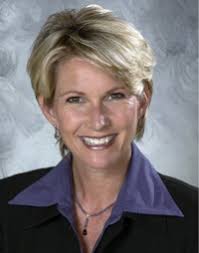by
Robert KiyosakiPeople often ask me, "How do you find great investments?" My standard reply is, "You have to train your brain to see them. Great investments are all around you."
I know that's not a very satisfying answer. Most people want something more specific and concrete. But my reply is as accurate as possible. If we could've seen all the great investments just in the past decade, we'd all be multi-billionaires.
Missing Out on MillionsThere have never been more opportunities to become rich than in the last 10 years. And there'll be even more opportunities in the next 10. Let me explain. Like many investors, I didn't see the power of eBay almost a decade ago. If I had, I'd be a billionaire today. Nor did I see the power of YouTube, or Google, or MySpace. Being an old guy, my brain isn't trained to see investing opportunities in cyberspace. So I missed them.
Thirty years ago, when my business career was just starting at Xerox, I was introduced to a new type of computer. I wasn't tuned into computers at the time, so little did I know that I was looking at the early version of what was to become the Macintosh. So I also missed that billion-dollar opportunity, too. How many billion-dollar opportunities have I missed? Maybe millions.
If I've missed so many million- and billion-dollar opportunities, why am I writing articles and speaking worldwide about financial independence? That's a valid question, and the answer has to do with helping you find great investments.
Perseverance Pays OffI took my first real estate investment course in 1974 in Honolulu. The cost was $385, and I believe it was two or three days long. Toward the end of the class, the instructor said something I've never forgotten: "Now you know the difference between good real estate investments and bad real estate investments. Now you all know what to look for."
He paused and then added, "The problem is, most people will tell you such investments don't exist. Your friends will tell you so, and so will real estate agents." Truer words were never spoken. For the next few months, I went from real estate office to real estate office, looking for investments. As promised, the real estate agents told me what I was looking for didn't exist. My friends and co-workers at Xerox told me the same thing, and said I was either dreaming or smoking funny cigarettes.
Finally, in a small, obscure real estate office in downtown Waikiki, I met a scruffy little broker who said, "I have what you want." The next weekend I was on a plane to Maui, where he'd found an entire condominium development that was in foreclosure.
I purchased my first piece of investment real estate for $18,000, putting the $2,000 down payment on my credit card. The one-bedroom/one-bath condo paid me a positive cash flow, even after all the expenses and mortgage payments. My investment career had begun. More important, I was training my brain to see what most people don't see. That $385 real estate course has made me millions of dollars over the years.
Keep an Open mindEarlier this year, around tax time, I wrote an article, "Think Rich to Lower Your Taxes." It was about an investment strategy known as the "velocity of money," and how I use it to invest, make a lot of money, and then legally use the tax laws to minimize my own taxes. I suspected it would spark some controversy, and it did.
For a couple of weeks, I kept track of responses. Some of the less-complimentary comments reminded me of what those real estate agents and my friends at Xerox said to me back in 1974.
You see, our brains are either our greatest assets or our greatest liabilities. As I said, when it comes to investment opportunities in technology, my brain is a liability; I just don't get it. When it comes to investment opportunities in real estate, gold, oil, and silver I'm above average, but not great. And that's because I've trained my brain to see opportunities in those areas.
So, instead of criticizing the readers who were close-minded (or even mean-spirited) about my advice, I encourage them to keep an open mind and find their own way of seeing investments most people miss. That's how you get rich. People who refuse to open their minds to new strategies seldom become rich -- which I guess is why there are more critics in the world than rich people.
Finding Your Magic FormulaOne of the most important things my rich dad taught me was to never say, "I can't do it" or "I can't afford it." Those thoughts are self-limiting, and it's hard to find great investments when you're basing your behavior on limitations. In today's world, there are more investing opportunities than ever before. Why would anyone want limited financial results in an unlimited world?
One of the reasons I write about financial independence is so I can put forth ideas that challenge the way people think about investing. If you want the same old financial-planning dogma of "work hard, save money, live below your means, get out of debt, and invest in a well-diversified portfolio of mutual funds," then my philosophies are obviously not for you.
My job is to stimulate your thinking, inform you about why rich people get richer, and encourage you to find the magic financial formula that works for you. I found mine, and I want you to find yours. -
Robert Kiyosaki


















